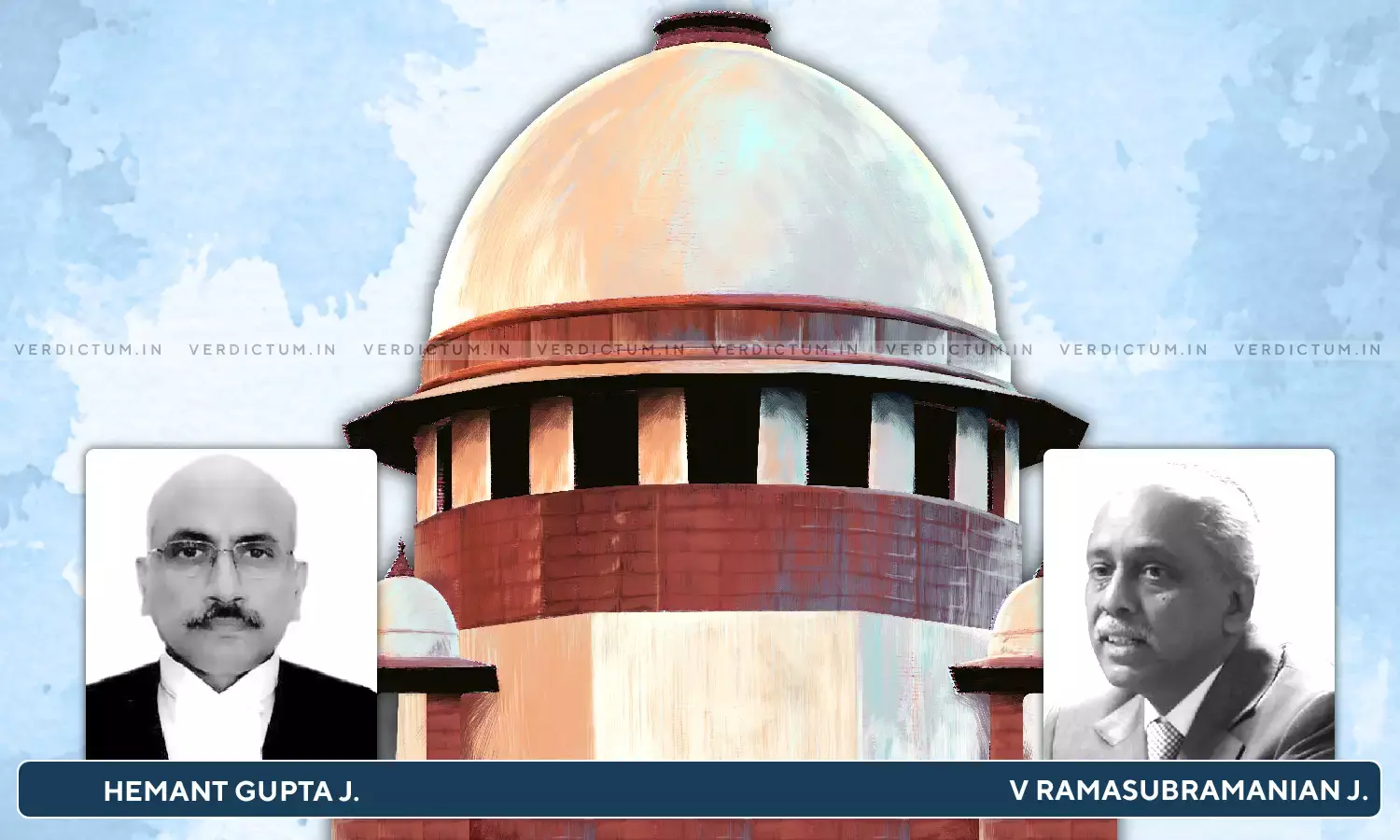Sufficiency/Inadequacy Of Reasons Cannot Be Gone Into While Considering Validity Of Act Of Authorization - SC

The Supreme Court has observed that the sufficiency or inadequacy of the reasons to believe recorded cannot be gone into while considering the validity of an act of authorization to conduct search and seizure.
The Bench of Justice Hemant Gupta and Justice V. Ramasubramanian opined that "…the sufficiency or inadequacy of the reasons to believe recorded cannot be gone into while considering the validity of an act of authorization to conduct search and seizure. The belief recorded alone is justiciable but only while keeping in view the Wednesbury Principle of Reasonableness. Such reasonableness is not a power to act as an appellate authority over the reasons to believe recorded."
In this case the respondent-assessee had challenged the act of authorization for search and seizure on the ground that it is a fishing enquiry. In the petition it was averred that conditions precedent as specified in Section 132 of the Income Tax Act were not satisfied.
It was the stand of the assessee that he was looking for an avenue to invest some money and one- M/s. Goan Recreation Clubs Private Ltd was in need of finance for setting up of its business and hence consequently approached the assessee herein for a loan. As a security, the borrower company offered that another company would give its property to the assessee.
In the counter-affidavit filed by the Revenue, giving the history of transaction, it was stated that the "chain of events raised credible doubt on the transaction entered into by the petitioner (assessee) with the company in question as it is the familiar modus operandi being practiced by the entry operators". It was stated that the investment and nature of transaction entered into by the assessee was akin to the familiar modus operandi employed by the entry operators to provide an accommodation entry to bring the unaccounted black money to books.
The Gujarat High Court found that none of the reasons to believe to issue authorization met the requirement of Section 132(1)(a), (b) and (c) of the Income Tax Act. Accordingly the High Court quashed the warrant issued by the revenue department and all actions taken pursuant to such warrant of authorization were ordered to be rendered invalid.
Additional Solicitor General Balbir Singh, appearing for the Revenue argued that the jurisdiction of the High Court is to examine the existence of reasons not the legality of the same whereas Senior Advocate Datar appearing for the assessee argued that the High Court has rightly held that none of the pre-requisite conditions for search and seizure under Section 132 of the Act are satisfied.
The Court held "We have heard learned counsel for the parties and find that the view of the High Court that the authorization to search the premises of the assessee is invalid, cannot be sustained."
The Court also observed "The High Court quoted extensively from the counter-affidavit filed by the Revenue as well as quoted para 4.3 of the affidavit-in reply but still returned a finding that the Court could not find any other material whatsoever insofar as the assessee is concerned for the purpose of recording satisfaction under Section 132 of the Act. We find that reasons to believe are not the final conclusions which the revenue would arrive at while framing block assessment in terms of Chapter XIV-B of the Act."
The Court noted that the Revenue Department intends to investigate the fund trail of the money paid by the assessee and Such belief was not out of hat or whimsical.
The Court further observed that the assessee was in possession of Rs.10 crores which was advanced as loan to the Company which the Revenue wanted to find out as to whether such amount is an undisclosed income which would include the sources from which such amount of Rs.10 crores was advanced as loan to a totally stranger person, unconnected with either the affairs of assessee or any other link, to justify as to how a person in Ahmedabad has advanced Rs.10 crores to the Company situated at Kolkata in West Bengal for the purpose of investment in Goa.
The Court expressed that the Revenue department may fail or succeed but that would not be a reason to interfere with the search and seizure operations at the threshold, denying an opportunity to the Revenue to unravel the mystery surrounding the investment made by the assessee.
While laying down principles in exercising the writ jurisdiction in the matter of search and seizure under Income Tax Act the Court opined that reasons to believe may have to be placed before the High Court in the event of a challenge to formation of the belief of the competent authority in which event the Court would be entitled to examine the reasons for the formation of the belief, though not the sufficiency or adequacy thereof.
The Court further held that the question as to whether such reasons are adequate or not is not a matter for the Court to review in a writ petition.
"In view of the above, we find that the High Court was not justified in setting aside the authorization of search dated 07.08.2018. Consequently, the appeal is allowed and the order passed by the High Court is set aside. As a consequence thereof, the Revenue would be at liberty to proceed against the assessee in accordance with law.", the Court concluded.
Click here to read/download the Judgment

